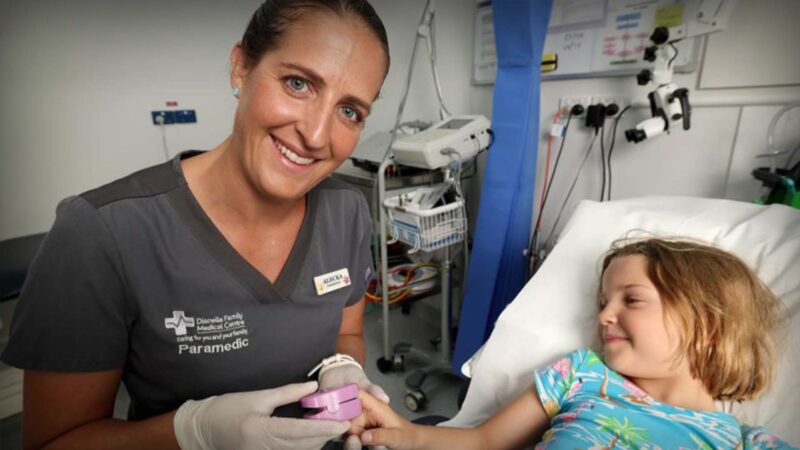Beyond engagement: consumers and communities as agents of health care change and improvement AUSTRALIAN PRIMARY HEALTHCARE INSIGHTS AND INNOVATION VODCAST SERIES. Full Feature Vodcast 3
A Joint Prestantia Health and AUDIENCED Production, with
- Dr Coralie Wales OAM, Honorary Community Fellow, Western Sydney University
- Dr Paresh Dawda, GP Lead and Adviser, Founder Prestantia Health
- Dr Tara Kiran, Family Physician and Scientist, St Michaels Hospital, Unity Health Toronto and Fidani Chair in Improvement and Innovation, University of Toronto
FACILITATOR
Leanne Wells, Associate Consultant, Prestantia Health
Australian Health Journal Segment
Filmed Online | April 2025
In a recently convened online conversation, expert and community leaders in primary health care, were invited to participate in an international panel in for the third vodcast in the Australian Primary Health Care Insights and Innovation Series.
The series is a thought leadership initiative which features vodcasts and accompanying blogs covering predominantly primary care related topics of contemporary or emerging interest to health care policy makers, clinicians, researchers, improvers, commissioning organisations and consumers. The series is designed to stimulate discussion and reflection about the learnings and experience of health system experts from across Australia and around the world.
The first vodcast in the Australian Primary Health Care Insights and Innovation Series highlighted that health system leadership must include consumer and community leadership. Harnessed and supported in the right way, consumer insights and preferences improve policies, services, experiences and outcomes.
Policymakers, health administrators and clinicians must learn and embrace new ways to harness the transformative role consumers, community members and carers can play. Conversely, consumers and communities need support, capability and capacity to engage as equals in policy, research, program and service design. This is necessary if are to be less technocratic and realise the vision where all members of society can live the best life possible.
As developed countries grapple with sustainability and how best to assure and strengthen primary health care, it is important that our system leaders and those who translate policy into services build trust by developing and demonstrating that they have a firm grasp on consumer and community expectations and preferences.
Our system already features many ways to support consumer and community involvement. There are formal processes, including Royal Commissions, parliamentary inquiries, and government-led consultations. The Australian Commission for Safety and Quality in Healthcare mandates a partnering with consumer standard against which all hospitals are accredited. Primary Health Networks (PHNs) are required to have a community advisory committee as part of their governance structures, and it is commonplace for local hospital networks to have some form of consumer engagement forum.
To further elevate and underscore the importance of consumer and community involvement, the World Health Organisation (WHO) has produced a social participation declaration. It too recognises that lived experience and knowledge shapes better policy, more inclusive health systems, improved services, experiences and outcomes. It also recognises that while people are increasingly being engaged as partners in health systems, recognition and influence is variable. Most importantly, the resolution makes social participation a core function within health systems, committing countries to strengthening, systematising and sustaining social participation.
Source: Excerpts from Prestantia Health blog post written by Leanne Wells
You Might also like
-
Diary of a Paramedic in a primary health care clinic
Alecka Miles is a lecturer at Edith Cowan University and works as a paramedic in a multidisciplinary team at Dianella Family Medical Centre in Metropolitan Perth, Western Australia.
Community paramedic roles have a history in Australia, dating back to 2007 in New South Wales and followed by similar initiatives in South Australia and New Zealand. Alecka’s position emerged after she sought to evaluate how paramedics could integrate into general practice, ultimately leading to a job offer post-COVID lockdown in 2020. Her skills, particularly in cannulation, proved valuable as healthcare shifted towards primary care.
-
Analogy of the system, rather than the ED front door
“The problem of blockages shows up in ambulance ramping and long wait times, but this is a complex issue requiring whole-of-health system solutions,” according to Professor Hugh Grantham, Chair of Emergency Medicine Foundation in an interview with Australian Health Journal.
-
Australian Teletrial Program reaches significant milestones in trials and participants
Launched in 2022, the Australian Teletrial Program is an initiative designed to improve access to clinical trials for people living in regional and remote areas of Australia. It uses telemedicine and digital technologies to enable patients to participate in clinical trials without needing to travel long distances to major metropolitan centres, which can often be a barrier to participation for those in rural and isolated locations.
Recently Australian Health Journal met with Kaye Hewson, Director, Australian Teletrials Program, who spoke about the program’s recent achievements.



